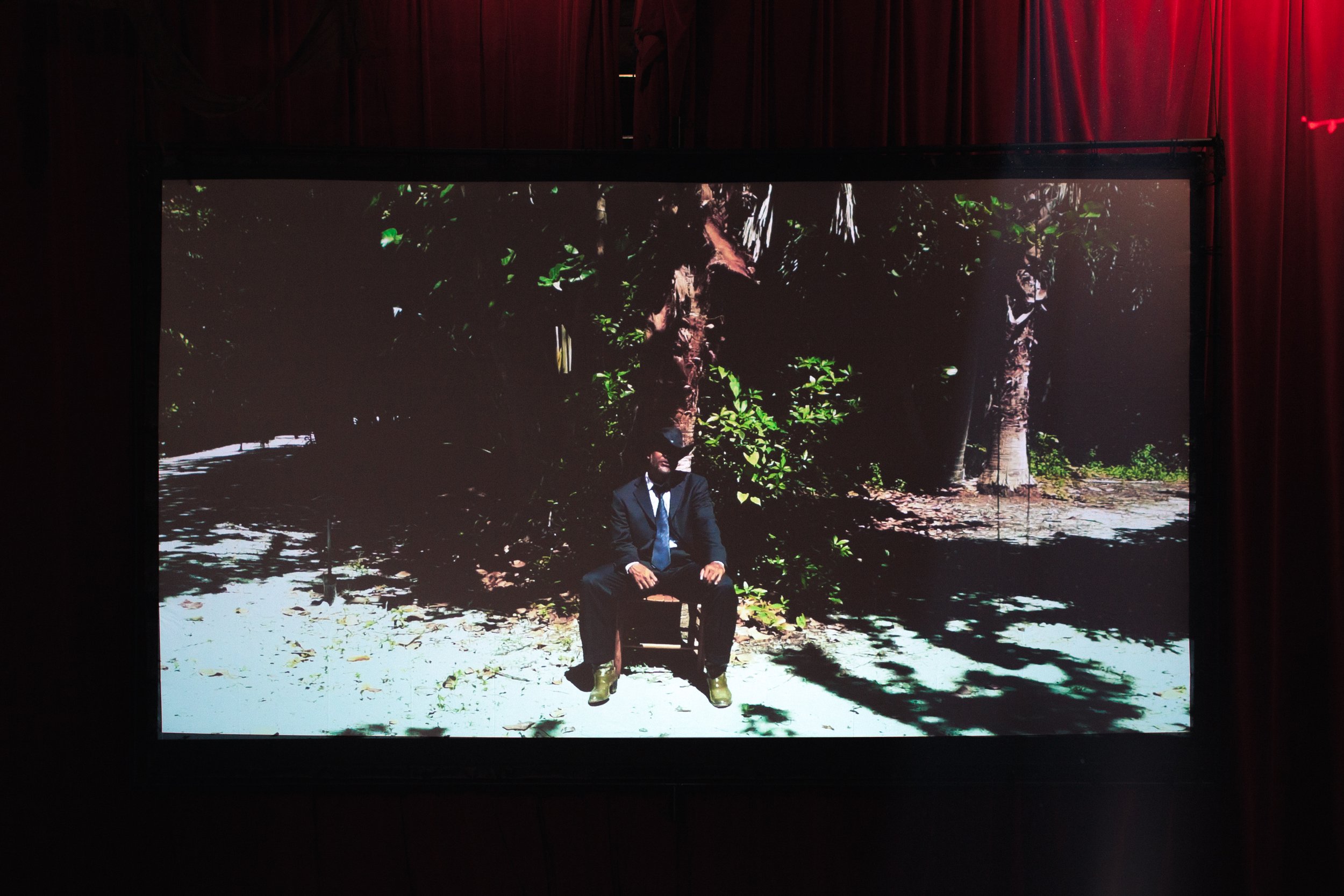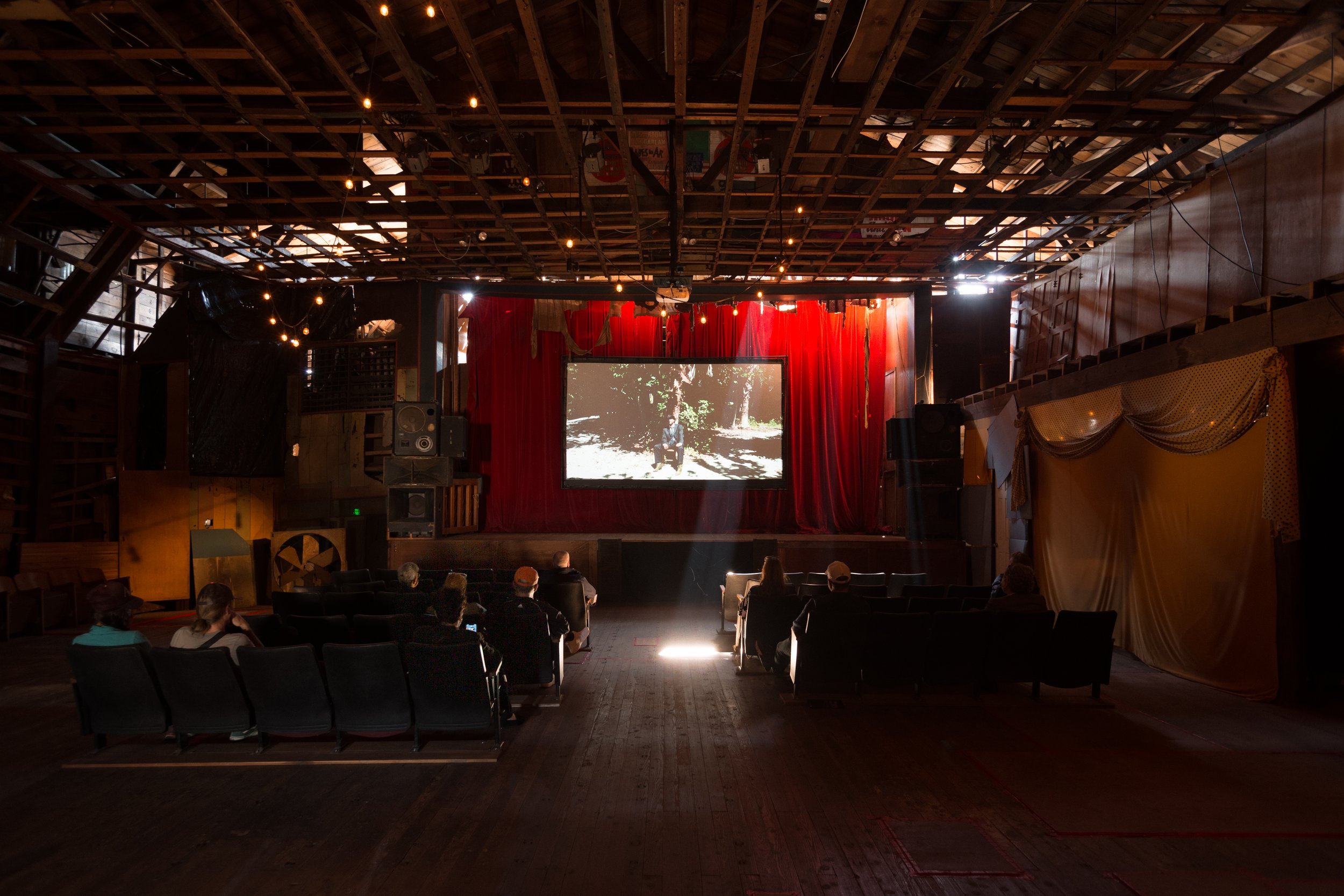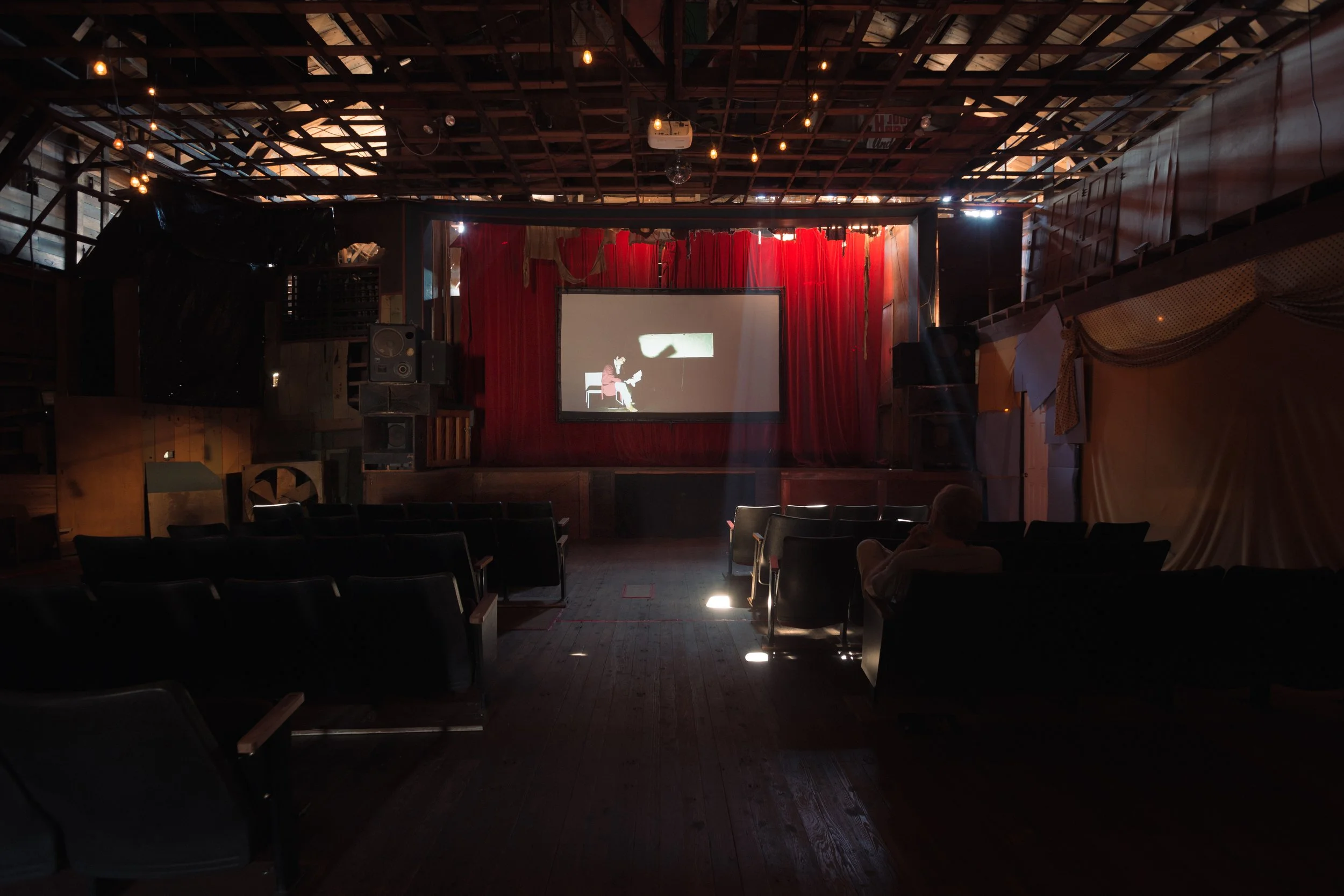Rodney McMillian
b. 1969, Columbia, South Carolina
Lives in Los Angeles
venue
Happyland Theater
3126 Burgundy Street, New Orleans, LA 70117
Wednesday–Sunday, 11 AM–4 PM
neighborhood
Ninth Ward/Lower Ninth Ward/Bywater (Upper Ninth)
about the project
God Is In The Whip, 2017-2021
HD color video, with sound; 33 min., 24 sec.
Preacher Man II, 2017-2021
HD color video, with sound; 29 min., 04 sec.
Both works are courtesy the artist; Vielmetter, Los Angeles; and Petzel Gallery, New York
Rodney McMillian’s videos, each on view for the first time, reveal resonant undercurrents within mainstream political speech of the past. In God Is In The Whip a character dressed in a Ronald Reagan mask and red smoking jacket, reads passages from The Conscience of a Conservative, written in 1960 by Barry Goldwater, a politician who is often credited as shaping contemporary conservative ideology. Between readings, the character cracks a bullwhip at a blank white panel while describing how this tool of domination is also useful for the creation of a landscape painting, suggesting the link between narratives of individual freedom and economic independence, and the violence that has shaped the ideals and realities of the United States.
In Preacher Man II, a country preacher recites a text by civil rights activist Kwame Ture (formerly Stokely Carmichael) written at the height of the Black Power movement, in a subtropical environment recalling the Southern United States. The text emphasizes truths that are often disavowed, namely that the wealth of the United States is built on settler colonialism and the labor of enslaved peoples, and yet the oppressed are routinely chastised for resorting to force. While Ture’s language is clearly rooted in the context of the Vietnam War, in McMillian’s work the ideas feel painfully relevant to our moment.
These videos continue McMillian’s ongoing investigations of what landscape, as both the backdrop of daily life and a genre of painting, reveals about culture and politics. They also consider the ways history informs the present, a key theme of Prospect.5: Yesterday we said tomorrow, highlighting the continuation of oppressive political and legal systems.
about the artist
Rodney McMillian explores the complex and fraught connections between history and contemporary culture, not only as they are expressed in American politics, but also as they are manifest in American modernist art traditions. Aspects of his work, which takes the form of painting, sculpture, video, and performance, negotiates between the body of a political nature and the politic of a bodily nature. McMillian’s recent solo exhibitions include The Brown: videos from The Black Show, the Underground Museum, Los Angeles, and In This Land, San Francisco Museum of Modern Art. His work has been the subject of major presentations at the Studio Museum in Harlem, New York; The Institute of Contemporary Art, Philadelphia; MoMA PS1, New York; Aspen Art Museum, and the Kitchen, New York. In 2016 McMillian received the Contemporary Austin’s inaugural Suzanne Deal Booth Art Prize and the resulting solo exhibition Against a Civic Death was on view in 2018. McMillian received an MFA from the California Institute of the Arts in 2002. He is a faculty member in the Department of Art at the School of Arts and Architecture at the University of California, Los Angeles.



Rodney McMillian, 2021. Installation view: Prospect.5: Yesterday we said tomorrow, 2021–22. Happyland Theater, New Orleans. Courtesy Prospect New Orleans. Photos: Jose Cotto